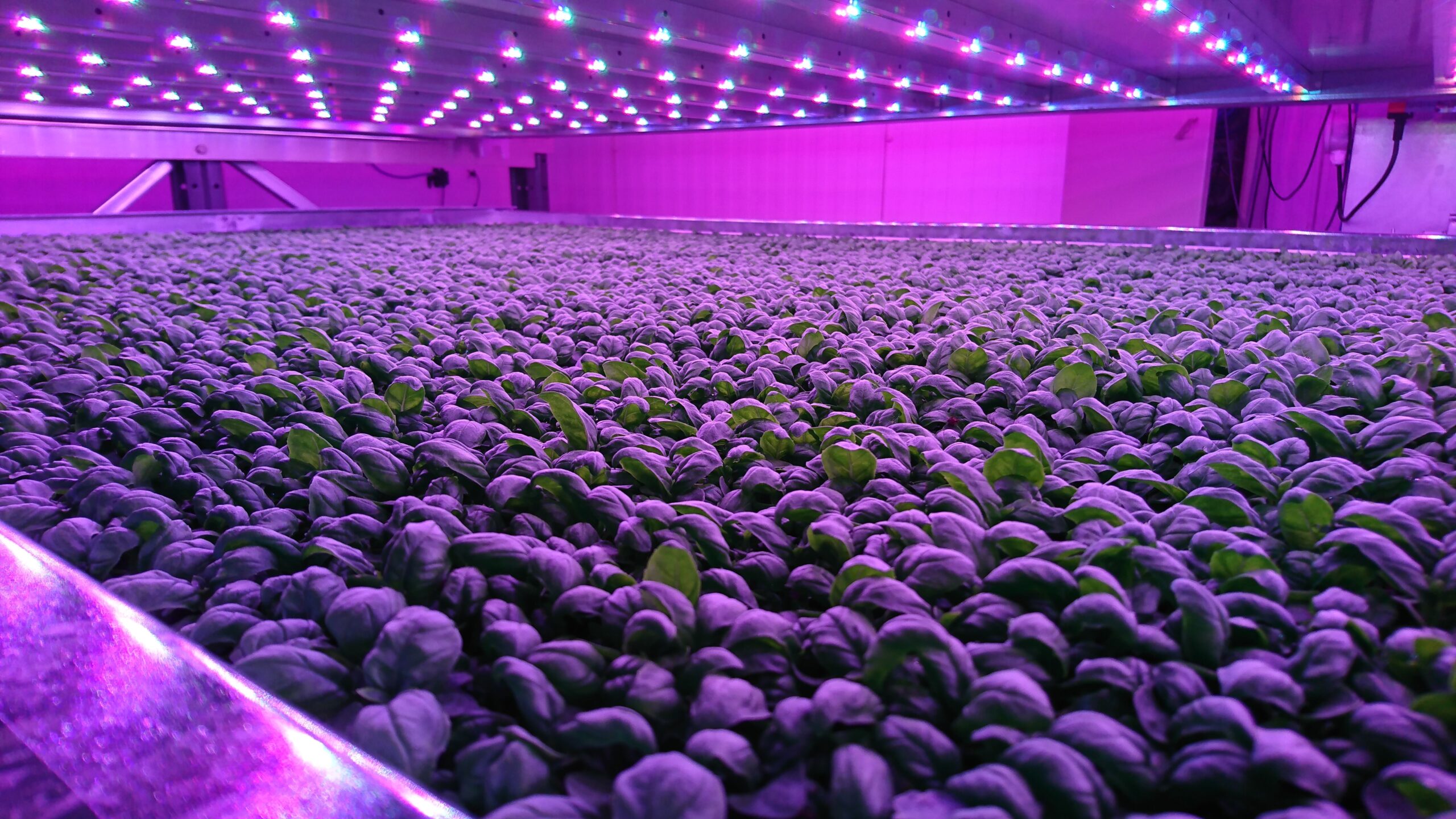Delivering the future
Positioned between research and industry, the Advanced Plant Growth Centre facilities bring together a range of technologies in a single research facility. These facilities are interconnected but independent, facilitating scientific innovation and discovery in controlled environments, precision agriculture and phenotyping.
We are targeting the next generation of agscience, agritech, pharmatech and crop science organisations to partner, collaborate and support. Offering local solutions to address sustainable agriculture and new agricultural business opportunities.
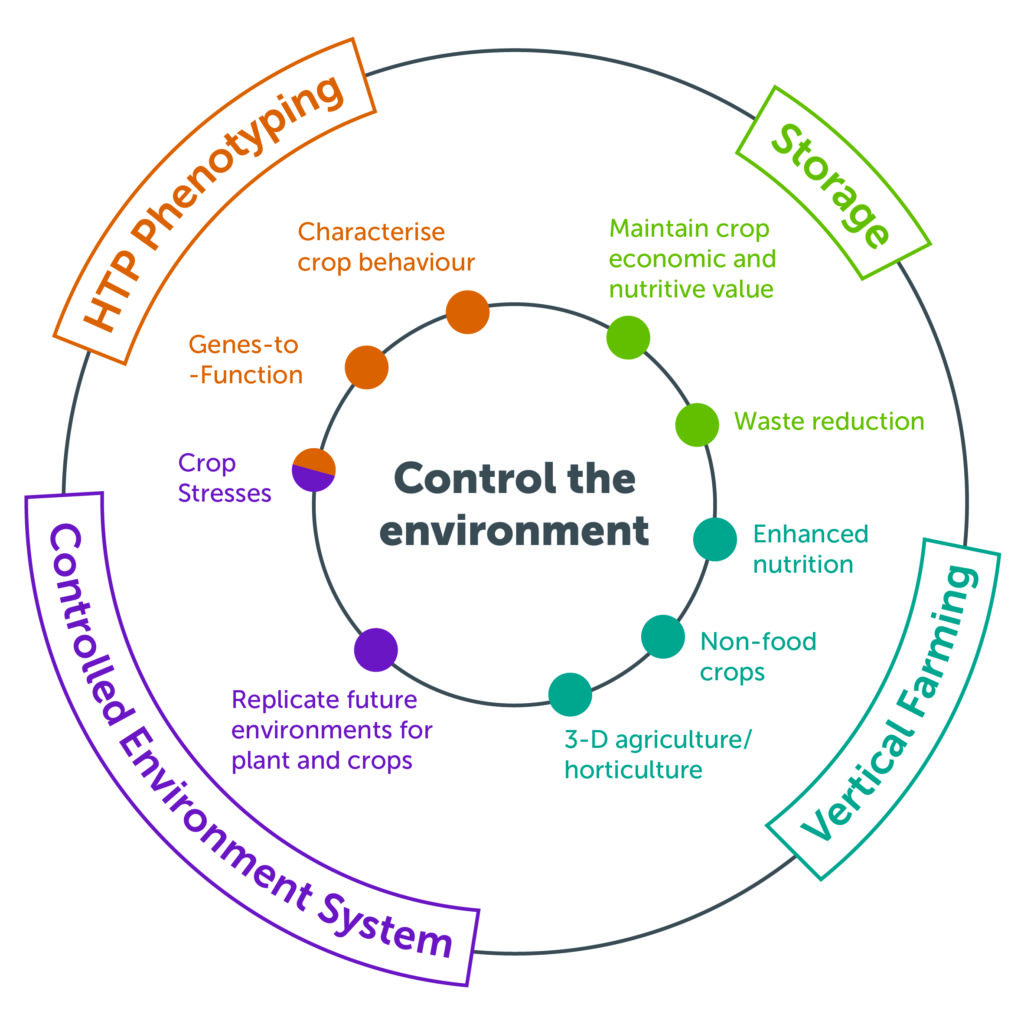

We’re one of two James Hutton Institute innovation centre projects which are part of the £62 million investment of the Tay Cities Region Deal.

We’re leading the world in developing scientific solutions for food security.
Advanced Plant Growth Centre facilities
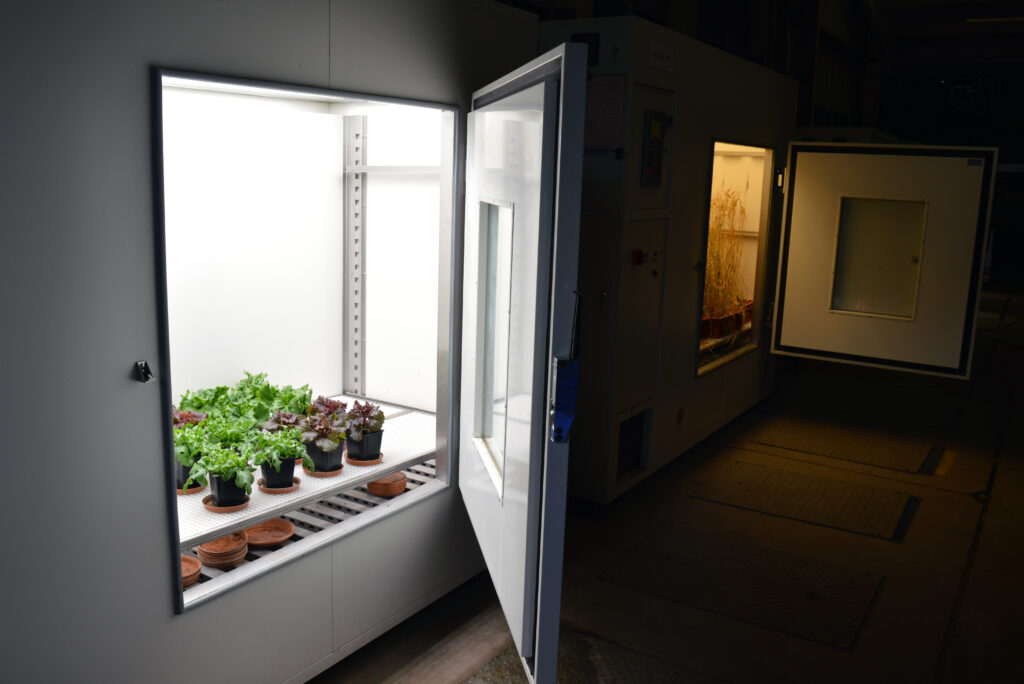
Advance controlled environments
Next-generation controlled-environment facilities comprising growth cabinets, growth rooms, a speed-breeding facility, polytunnels and glasshouses equipped with specialist lighting and environmental controls which can replicate future environments and climates.
High-throughput phenotyping platform
A fully automated system that can grow crops in controlled environments and then characterise them using imaging technologies, analysing plant structure, developmental and biochemical information during crop variety development.
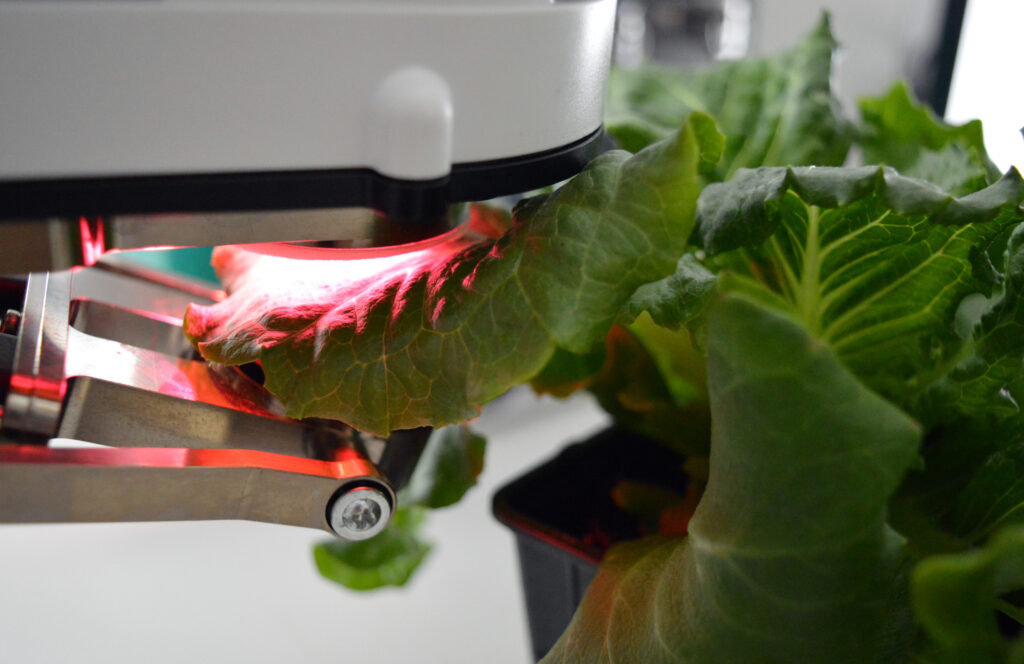
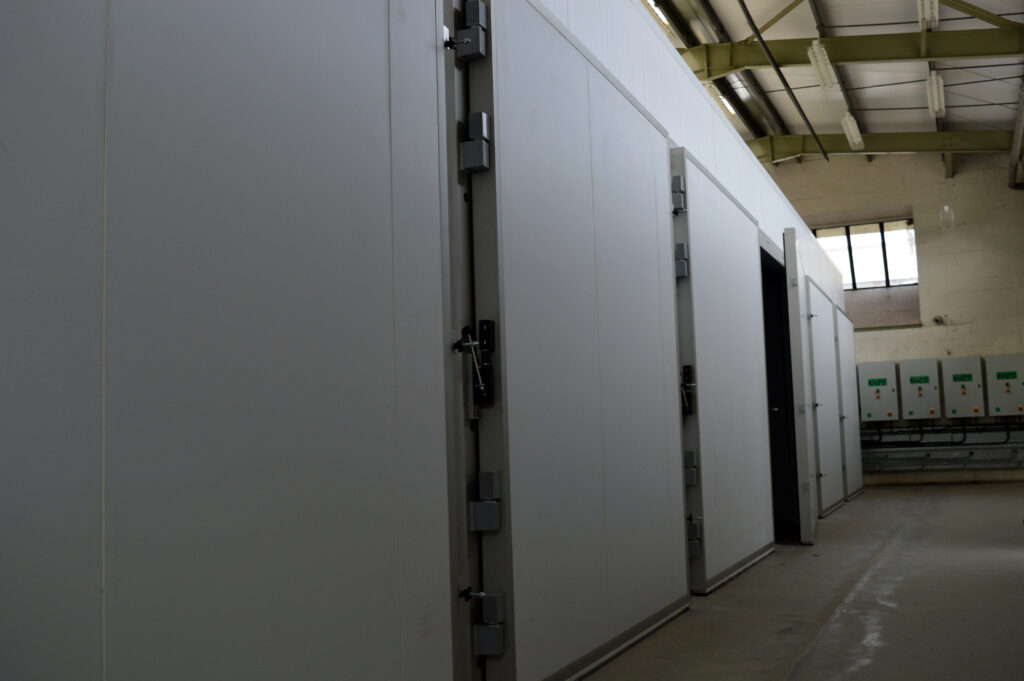
Post-harvest storage facility
An advanced and flexible controlled storage facility, unique in its scale, allowing crops to be developed with improved storage and supply chain characteristics as well as being resilient in the field.
Vertical growth tower
An indoor vertical ecosystem allowing plants and crops to be produced at very high densities in totally controlled environments, allowing year-round production of identical plant material of a consistent and high quality.
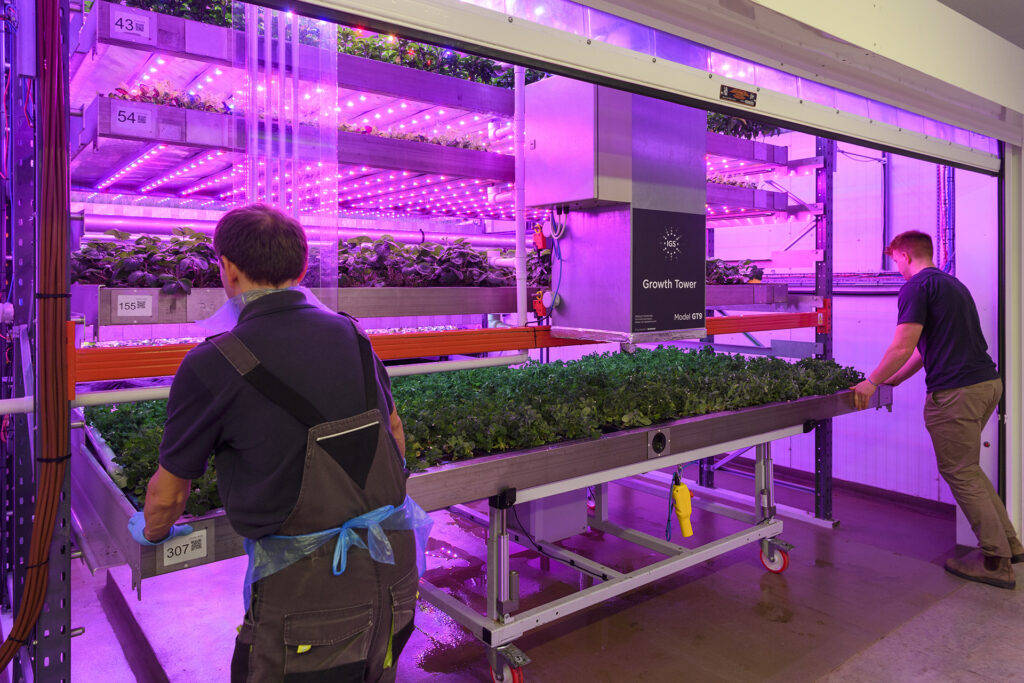

Hutton Molecular Phenotyping Centre
Our brand new Molecular Phenotyping Centre will give researchers access to state-of-the-art phenotyping equipment allowing them to understand how different environmental conditions affect plants at a molecular level.


